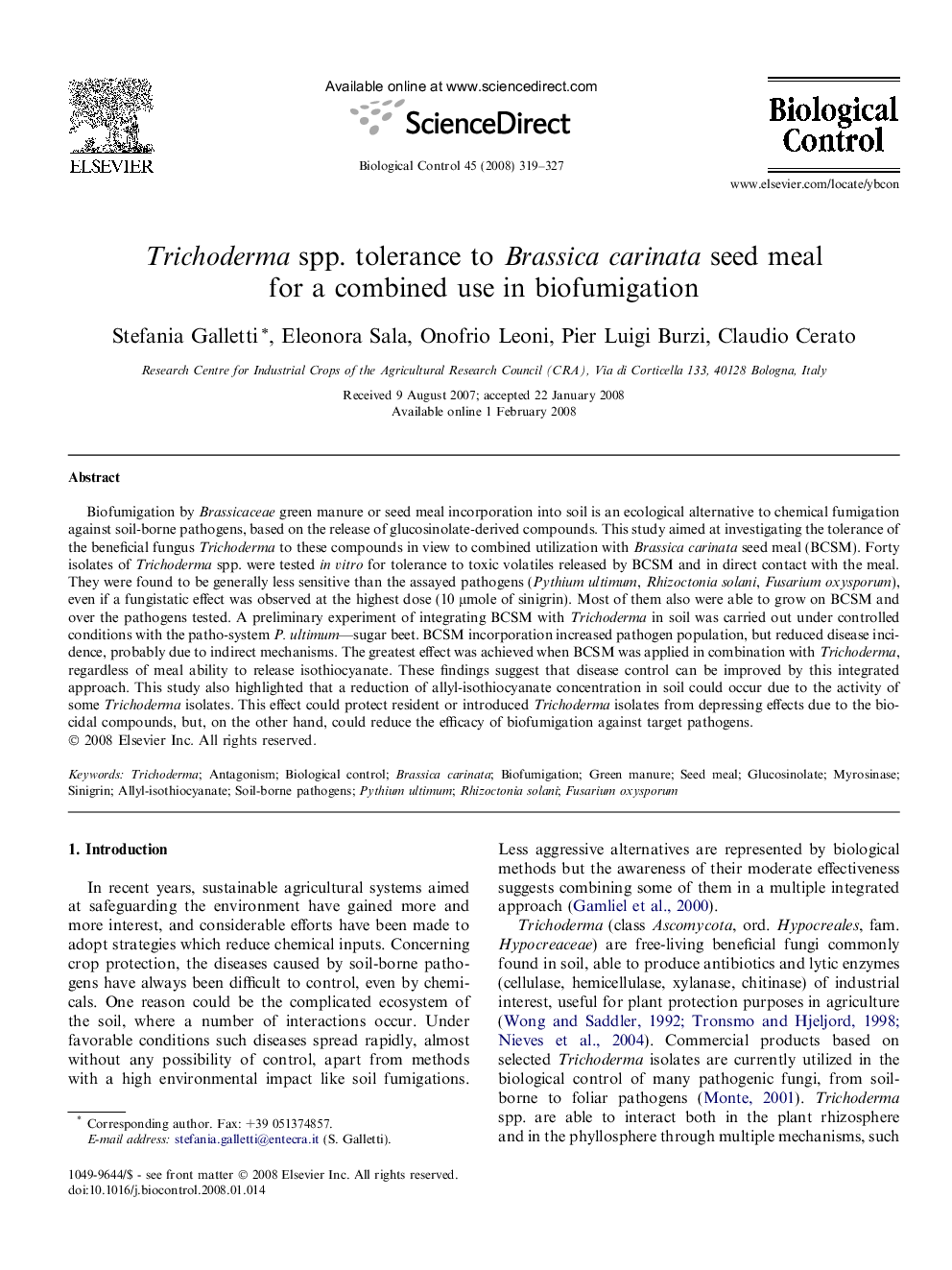| Article ID | Journal | Published Year | Pages | File Type |
|---|---|---|---|---|
| 4504962 | Biological Control | 2008 | 9 Pages |
Biofumigation by Brassicaceae green manure or seed meal incorporation into soil is an ecological alternative to chemical fumigation against soil-borne pathogens, based on the release of glucosinolate-derived compounds. This study aimed at investigating the tolerance of the beneficial fungus Trichoderma to these compounds in view to combined utilization with Brassica carinata seed meal (BCSM). Forty isolates of Trichoderma spp. were tested in vitro for tolerance to toxic volatiles released by BCSM and in direct contact with the meal. They were found to be generally less sensitive than the assayed pathogens (Pythium ultimum, Rhizoctonia solani, Fusarium oxysporum), even if a fungistatic effect was observed at the highest dose (10 μmole of sinigrin). Most of them also were able to grow on BCSM and over the pathogens tested. A preliminary experiment of integrating BCSM with Trichoderma in soil was carried out under controlled conditions with the patho-system P. ultimum—sugar beet. BCSM incorporation increased pathogen population, but reduced disease incidence, probably due to indirect mechanisms. The greatest effect was achieved when BCSM was applied in combination with Trichoderma, regardless of meal ability to release isothiocyanate. These findings suggest that disease control can be improved by this integrated approach. This study also highlighted that a reduction of allyl-isothiocyanate concentration in soil could occur due to the activity of some Trichoderma isolates. This effect could protect resident or introduced Trichoderma isolates from depressing effects due to the biocidal compounds, but, on the other hand, could reduce the efficacy of biofumigation against target pathogens.
